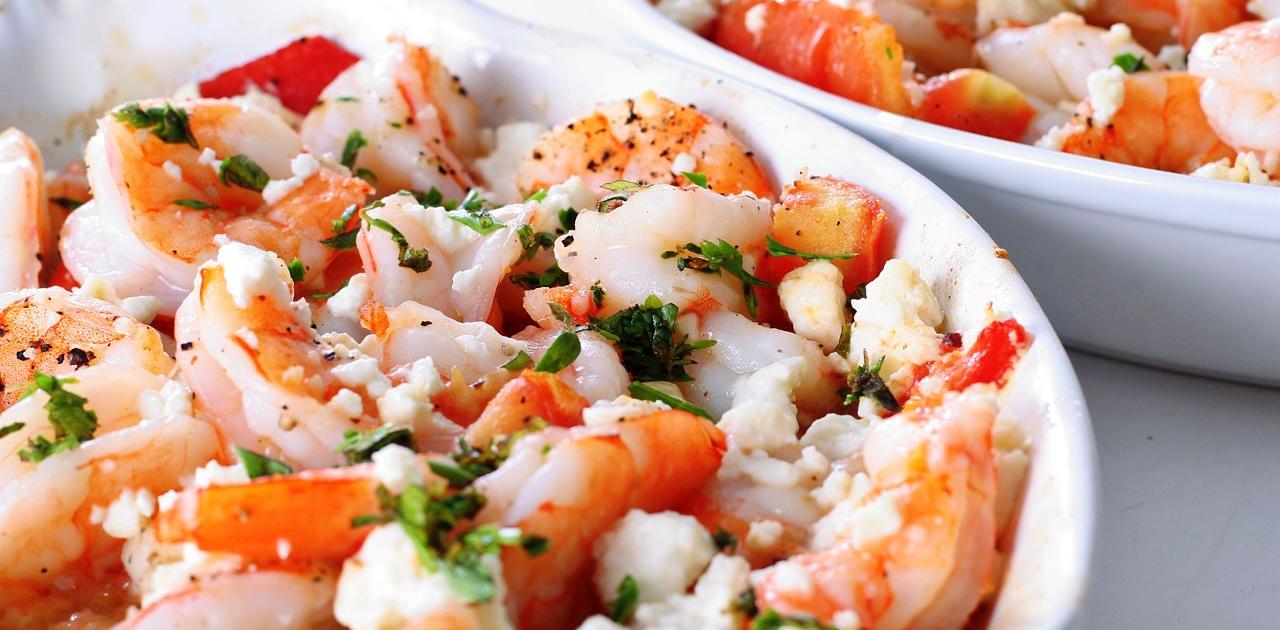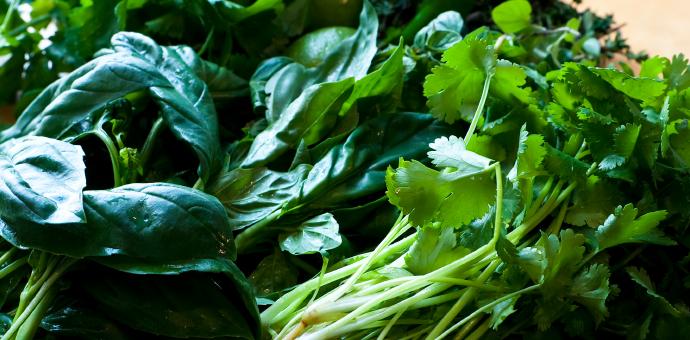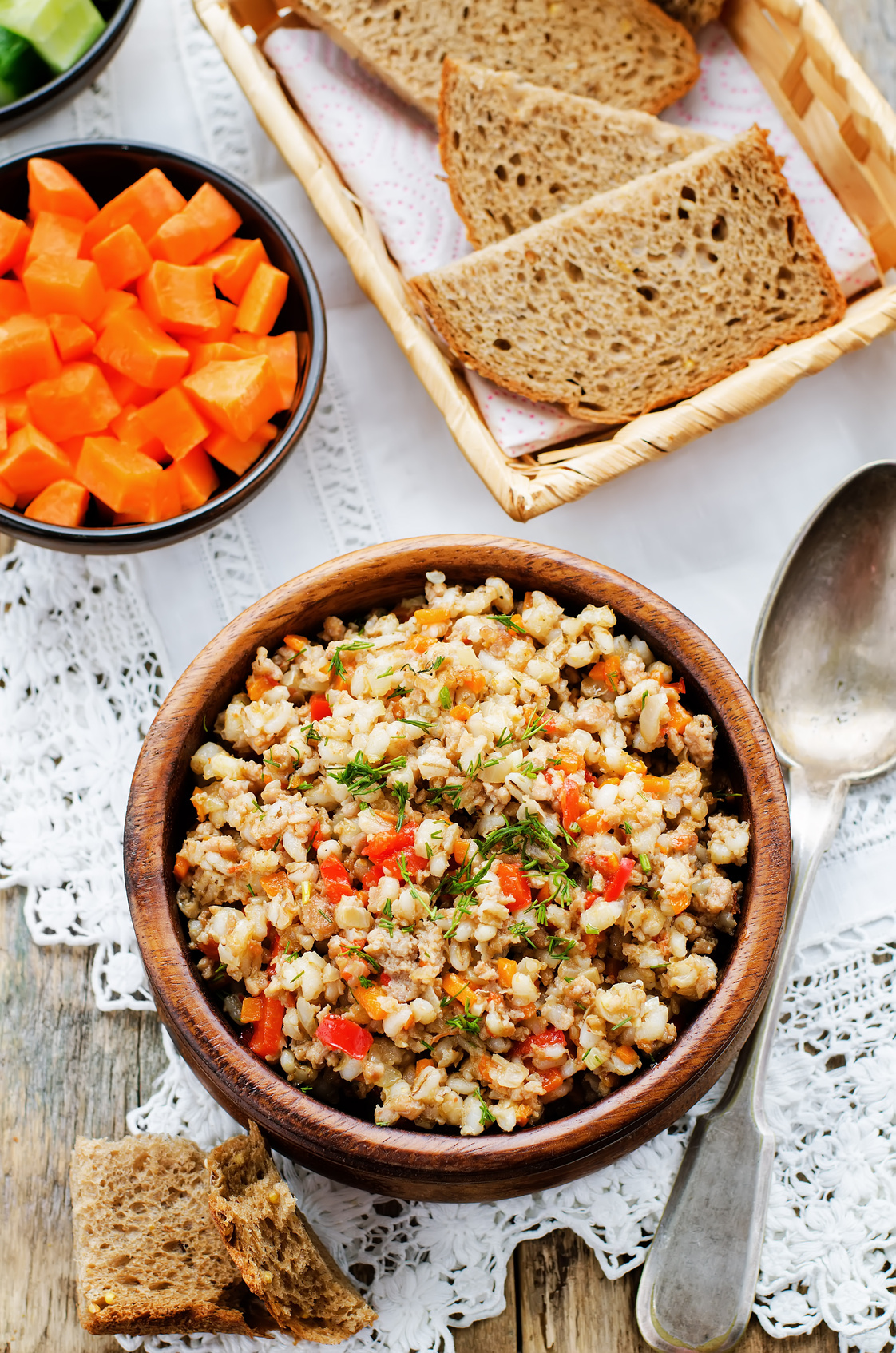You may be surprised to know that freezers (and refrigerators) run more efficiently when they are full. With more cold items taking up space, there is less room for warm air to permeate when you open the door, and the freezer needs less energy to operate.
All the more reason to stock up on peak produce now, and freeze it for the winter months ahead. Move that pint of ice cream to the side and make way for Mediterranean diet staples your freezer can help you eat well throughout the year.
Here are our 8 essential tips for mindfully filling up your freezer:
- Freeze herbs. Instead of letting fresh herbs wilt in your fridge, use this freezer trick: lightly pack them (minced) into ice cube trays, top the trays of with water, and stack them in the freezer. Once you have completely frozen cubes, empty the trays into freezer bags.
- Tackle greens. Kale, collard greens, beet greens, and other dark leafy greens can take up a lot of space in the fridge. Wash them well and flash cook them (submerge them in boiling water for about 30 seconds) as soon as you can after you bring them home. Once cool, chop them up and freeze them in freezer bags so they are ready to use for soups, frittatas, pasta and more.
-
Don’t let leftovers go to waste. When you make a big batch of soup, sauce, or stew, save some for the freezer. As much as we love the ease of reheating leftovers, it can get boring after a couple meals. Try freezing some of our Creamy Broccoli Soup for later it will seem like new again after a couple months.
- Think about portion size. After you make a big batch of soup, for example, it may seem more efficient to pack it all in one go into the largest container you have. Think about how you’ll use it coming out; it will thaw faster in smaller containers, and you’ll probably only want to have the same soup for two or three meals in a week.
- Keep a variety of whole grains. Sliced whole grain bread, English mufins, bagels, and pita are easy options for getting your whole grains in. Did you know that cooked whole grains, like farro and bulgur, freeze well too Store them in portion-sized containers or small freezer bags for easy use.
- Stock up on fish and seafood. Fresh fish and seafood are a big part of the Mediterranean diet, but eating them multiple times a week can add weight to your grocery bill. When fresh fish goes on sale at the supermarket, buy it in bulk and freeze it. Frozen bagged shrimp are also a good inexpensive option. They may be fresher than the fresh shrimp at the seafood counter, which is often thawed from frozen anyway. To ensure the fisheries where they come from are well-managed and sustainable, look for shrimp certified by an independent agency such as the Marine Stewardship Council, or choose wild-caught shrimp from North America.
- Freeze fruit all of it! You may already keep bags of frozen berries, mangos, bananas, and more in your freezer. Frozen fruits are perfect for smoothies and oatmeal. Try freezing your own fruit: flash freeze them by placing whole berries or bite-sized chunks of fruit on a sheet pan in the freezer for 10-15 minutes, then put them in bags or containers. This technique prevents the pieces of fruit from getting stuck together.
- Label. Make sure you label everything you put in the freezer with the date and the name of the food item. You don’t want to end up with a freezer full of food of uncertain origin and age, that you can’t identify after all of your hard work. Food doesn’t last forever in the freezer, so it’s important to be able to determine when things are past their prime. Use our freezing food guide to and out.
This blog post was inspired by Fresh Fridays, our bi-weekly Mediterranean Foods Alliance newsletter. Click here to sign up to recieve our next Fresh Fridays newsletter and never miss delicious Mediterranean recipes and cooking tips again.









Leave a comment